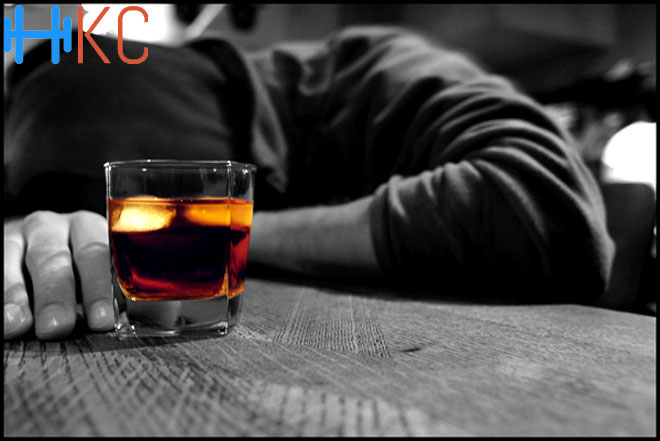Because we are quite accustomed to alcohol in social situations and celebrations, it is often difficult to tell if a person has a drinking problem. It is not unusual to overindulge in alcohol from time to time but for some, knowing when to stop is a problem. When a person has developed alcohol dependence or alcoholism, there are several types of alcoholism treatment programs available to them. However, in this article, we take a closer look at how they get to a stage where alcohol abuse treatment is the only way out of the problems.
People who mix with others regularly using alcohol may think that their behavior is “normal” and be unaware of the risks. They may also be unaware that they are developing a drinking problem that could escalate to become alcoholism. It is very difficult to prove a person has a drinking problem unless they admit it. However, there are signs and symptoms of alcohol abuse that can often give a person away and questions that can be asked to reveal if they are struggling with alcohol abuse.
First Question to Ask: Cutting Back on Drinking
This question can only be answered by the drinker themselves. Simply asking if they have ever contemplated cutting back on alcohol intake is often enough to elicit a telling response. Complete honesty is required to answer this question and the majority of people with drink problems may not wish to do so. If they automatically respond with a “no,” the answer is likely to be meaningless. However, if the answer is “yes” then they are almost certainly struggling with their alcohol consumption.
Next Question: Criticism Against Drinking
This is more of an observation really of how someone behaves when another person criticizes their drinking. If they respond defensively or with anger, they are very likely to be concealing how much alcohol they are actually consuming.
When a problem drinker gets defensive, this is a sign that they are not yet at the point where they can openly admit they are struggling. Many problem drinkers go to great lengths to conceal their alcohol use, often hiding bottles in unusual places at the office or at home. Defensive reactions and anger when others notice they are drinking too much are clear indications a person has a problem with alcohol.
Feeling Guilty About Drinking Problem
It is not unusual for someone dependent on alcohol to feel guilty about their behavior. One of the key characteristics of alcoholism is an overwhelming craving for alcohol that is not based on a person’s desire to get drunk. As the illness develops, individuals find it hard to quit drinking and often feel guilty about the damage they are doing to themselves and others. Nevertheless, this is often not enough to push them towards an alcoholism treatment program.
Drinking First Thing in the Morning
Finally, problem drinkers tend to drink at unusual times of day, particularly first thing in the morning. This can be because they wake up with withdrawal symptoms and feel compelled to use alcohol to relieve them. This is an addictive behavioral pattern that can be addressed in outpatient alcohol rehab, particularly with behavioral therapies and education on how to manage cravings.
Treatment and Support for Everyone
Alcohol abuse is a widespread problem in America and in many respects; it is our acceptance of alcohol that often prevents people from seeking help. Many people find obstacles to seeking an alcoholism treatment program when they are in the grips of addiction which is a characteristic symptom of the illness. However, there are several different types of therapies available to people with alcohol use disorder to appeal for individuals from all walks of life.
Residential and outpatient alcohol rehab are both effective in treating alcohol dependence and alcoholism. Once a person has accepted they need help, they are usually fully assessed so as to find the right alcohol abuse treatment path for their individual needs.
One of the most effective components of residential or outpatient alcohol rehab is addiction therapy and counseling. It is not essential to attend residential an alcohol rehabilitation center to become part of a large community of people with similar addiction issues. Mutual support among like-minded people has been proven to promote long-term recovery and 12 step groups such as AA and NA are completely free to attend.
Although it may be easy for a person with alcohol issues to find reasons not to get alcohol abuse treatment, they are rarely valid. In many cases where people are reluctant to get help, an intervention of family and friends is often the only route left open to them. Although it is tempting to think that people choose to drink too much, when they are dependent on alcohol, their freedom to choose is removed. Nevertheless, despite the complexities of addiction illness, there is a route to recovery for every individual who is suffering.























